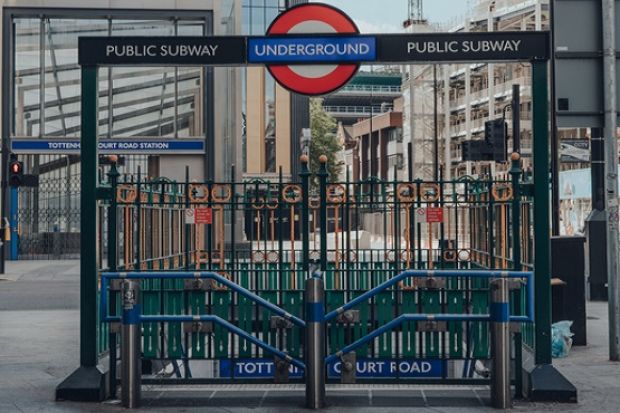When I was a child back in Mexico, my dad – a working class man – used to tell me about the brilliance of the British. He lauded their innovations and what a progressive country he believed the UK to be.
It should not be a surprise, therefore, that when I had the opportunity to study abroad in the late 1990s, it was the UK that I wholeheartedly believed to be worthy of my investment. And I was not disappointed. Sheffield welcomed me with open arms, and I found what my dad could only imagine: a culture where diversity of thinking, stemming from diverse people, was nurtured and innovation, growth and entrepreneurialism thrived. I loved it!
Like the great majority of international students, I never planned to stay beyond my studies. But there are times when staying is legitimately in the interests of both the graduate and the host country, as smart policy acknowledges. After my MBA, I had an opportunity to work for a university on a year-long project that I thought would give me useful experience for my future career. What I didn’t expect is that my work as an educator in engineering would be valued so much that, 26 years later, I am still here – in a place that chose me as much as I chose it and that I now call home.
I have given to this country and to its brilliant young people much more than I have been able to give to my home country. I don’t believe there are many people who can claim to have led the creation of a new, innovative and transformational university from scratch, yet that was what I became involved in as the founding president of the New Model Institute of Technology and Engineering (NMITE) in Hereford. And to me, it makes perfect sense. I have a commitment, as a genuinely adopted Brit, to work with British educators and industry to do all I can for the betterment of our shared country.
So imagine my shock and heartache when, at some point during the past decade, a crippling and misplaced narrative against international students began to emerge.
I have been genuinely affronted by claims of international students taking the place of home students, when it has been thanks to the former that British students can afford to study at higher education levels. Students from around the world are not opponents but friends. One of the most hopeful sights you can ever witness is the young of many nations finding ways to understand and inspire one another, to form teams and achieve more than would ever be possible alone.
Accusations that international students are entering UK universities through the back door are also painfully wide of the mark. Of course, it is not easy to learn in a different culture and a second language, but the students I know are determined to overcome the challenges and embrace education as an opportunity. It’s a contagious spirit.
I have spent time with international students who have come to the UK via foundation programmes, and I can only see bright and amazing young people who will grow into the change-makers the world needs now more than ever. Anyone who thinks they are not the “brightest and best”, each in their own way, has simply never met them, or is blinded by prejudice.
Time and again, the evidence has been put forward to government about the value of international students. Last week’s Migration Advisory Committee report, confirming unequivocally that there is no abuse of the graduate visa, is just the latest.
Until now, I have kept quiet about my feelings because I did not want to amplify what I knew to be false and politically motivated attacks on international students. But this is no time for silent bystanders, particularly because I am well positioned to comment on this debate. And this is my lived experience, which I have a right to share.
Many UK academics, industrialists, politicians and journalists know me. And they will know that my decision to speak can only be because I believe we are running out of time to preserve our reputation with international students. Further negative messaging and visa restrictions will inflict more damage on universities and our economy, and for what? I don’t understand who will gain.
The world is watching. Students and their parents are deciding whether we will welcome them with open arms, as I was: whether we care about their education and well-being – or just their money. For now, some will have decided to wait and see – or to go elsewhere.
The irony is that every UK university I have encountered, from the youngest and most specialist to the oldest and broadest, are high-quality and welcoming institutions. I recently asked a group of international students what they’d say to other young people in their home countries about studying in the UK, and they all said they’d tell them to come, because people here are supportive and kind. They praised their teachers. They were growing in confidence. And they loved their adopted cities.
There is still time to avoid making them eat their words. Rather than imperil its future for obscure political ends, let’s treasure such a precious part of our education system and our global future.
Elena Rodriguez-Falcon is provost of Study Group. She was the founding president and CEO of the New Model Institute of Technology and Engineering in Hereford.
Register to continue
Why register?
- Registration is free and only takes a moment
- Once registered, you can read 3 articles a month
- Sign up for our newsletter
Subscribe
Or subscribe for unlimited access to:
- Unlimited access to news, views, insights & reviews
- Digital editions
- Digital access to THE’s university and college rankings analysis
Already registered or a current subscriber?








